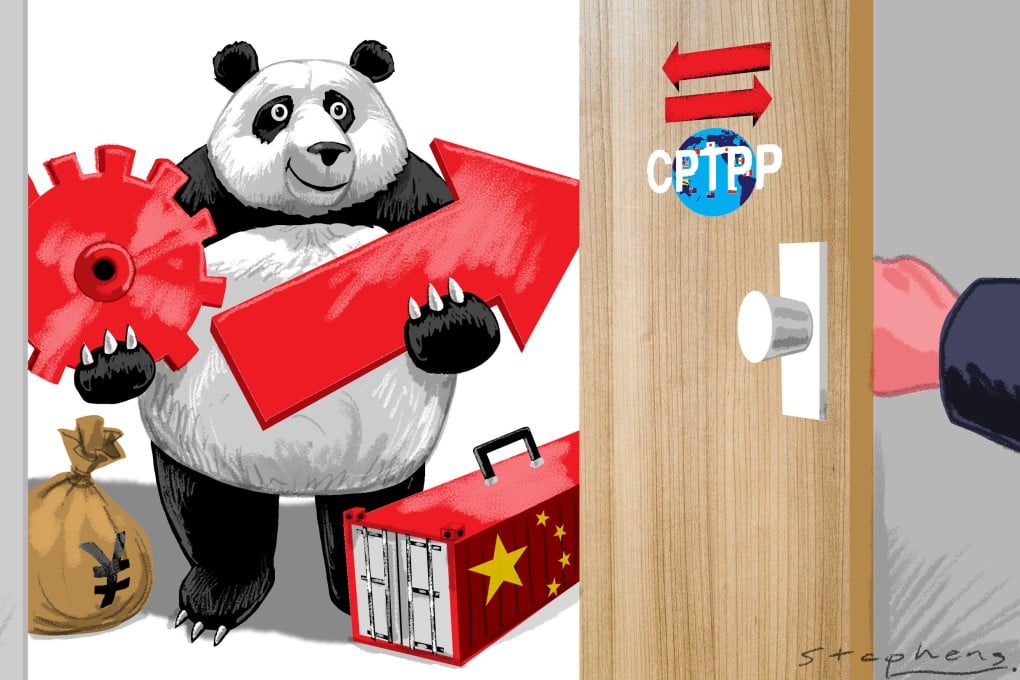Advertisement
Opinion | China’s CPTPP bid underlines its commitment to trade and reform
- Beijing has proved its determination to raise standards and improve China’s economy and society
- Its ambition to meet the trade pact’s stringent requirements makes a powerful statement to the world of its resolve
Reading Time:4 minutes
Why you can trust SCMP
4

China submitted its formal application this month to join the Comprehensive and Progressive Agreement for Trans-Pacific Partnership (CPTPP). During this time of turbulence in international trade, and of progress and reform in China, it serves as a strong signal that China intends to stay open internationally and improve economic standards domestically.
Advertisement
The trade pact is not new, of course. The US withdrawal in January 2017 of the proposed Trans-Pacific Partnership, the CPTPP’s predecessor, ended any chance of the TPP coming into effect. The remaining 11 TPP countries then made some adjustments to the original agreement and launched the pact as the CPTPP.
Despite the agreement coming into effect in 2018, however, ratification by all signatories has been slow, due to concerns about potential adverse economic impacts. Chile has yet to ratify the agreement because of major domestic opposition.
The reason for such concern is partly due to the unique nature of the CPTPP, which is not simply a “normal” trade agreement whereby all parties pledge to reduce trade barriers, mainly through cutting tariffs. It also confers on all parties responsibilities to raise the standards of their economy in exchange for greater access to each other’s markets.

This balance between obligation and reward affords all parties a more even playing field, at the potential expense of national sovereignty, as the CPTPP empowers the creation of ad hoc arbitration bodies and subsequent consequences for any party that violates the treaty.
Advertisement

Advertisement

